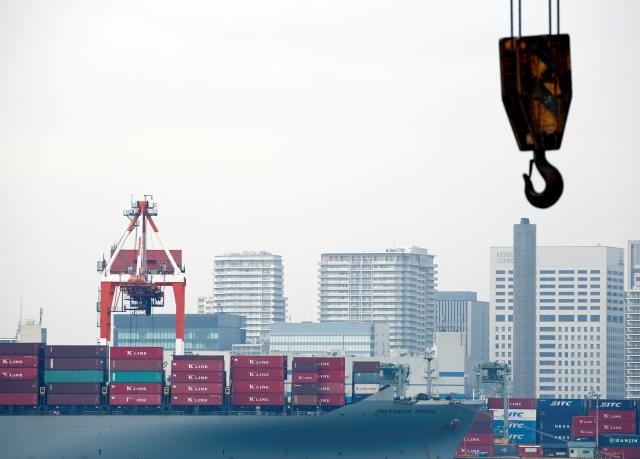Corporate Japan is bracing for a rocky ride under incoming U.S. President Donald Trump, a Reuters poll showed, with well over a third of firms seeing a contraction in global trade as concerns about a rise in U.S. protectionism threaten to shatter a fragile economic recovery.
Fully three-quarters of Japanese companies expect no expansion in world trade, highlighting festering anxiety that Trump's fiery protectionist rhetoric during campaigning might turn into growth-sapping policies through his four-year term that begins in January.
Throughout the campaign that led to his upset election win, the Republican president-elect pledged to redraw trade deals to win back American jobs. He has threatened Mexico and China with punitive tariffs that some economists have warned could spark a trade war that could potentially roll back decades of liberalization.
The Reuters Corporate Survey, conducted Nov. 22-Dec. 2, underscored such concerns.
The monthly poll of 531 big and mid-size firms found 40 percent expected global trade to shrink in the medium-term, 4 percent saw full-fledged trade friction, while 32 percent saw no change. Only one quarter predicted global trade will expand under Trump.
That would mark a deterioration in global trade, which has expanded at a modest rate below 3 percent in recent years after bouncing from a plunge in 2009 in the wake of the global financial crisis.
Trump has threatened to ditch the North American Free Trade Agreement, or NAFTA, between the United States, Canada and Mexico, arguing the agreement has sent U.S. manufacturing jobs to Mexico. He has also said he would withdraw from the Trans-Pacific Partnership, or TPP, an ambitious Asia-Pacific trade pact linking 12 countries including the United States and Japan.
In written responses, companies voiced concerns about the fate of TPP, NAFTA and Mexico, where Japanese automakers have plants, and how a waning American presence could pave the way for China to wield more influence worldwide.
"Reversal of free trade is a concern for our business, but what's more worrying is a weaker U.S. military presence in East Asia, which could embolden China to take control of the power vacuum in the region," wrote a manager at an electrical machinery company.
Trump "has declared exiting TPP and pushing bilateral trade pacts, and I'm worried about a shift in (global) trade regime towards one led by China," wrote a manager at a chemicals firm.
Managers answered on condition of anonymity in the survey, which was conducted for Reuters by Nikkei Research. Around 250 answered questions on the impact of a Trump presidency.
The uncertainty around Trump's trade policies adds to the risks for Japan's economy, which is struggling to mount a sustainable recovery amid slow global demand and sluggish domestic consumption.
UNPREDICTABLE
The survey found that three-quarters of Japanese companies saw no change in their investment stance towards U.S., while 14 percent said it would wane and the remaining 11 percent saw it growing.
Previous Reuters surveys taken during the election campaign had shown a majority of firms believed Trump would be bad for business in the United States, and that Japanese corporate appetite for investing in the U.S. would wane.
"Expectation is rising that Trump will adopt business-friendly steps such as infrastructure investment, tax cuts and deregulation," said Hidenobu Tokuda, senior economist at Mizuho Research Institute, who reviewed the survey results. "That said, companies remain cautious about what he says and does, which is all uncertain and utterly unpredictable."
The survey also found that companies worried both about a strong yen and a weak yen under a Trump presidency, suggesting there's no consensus on what sort of currency changes are in store.
The yen has nearly reversed all of this year's gains since the U.S. election - easing concerns about Japan's export-reliant economy - on expectations that Trump's proposed reflationary economic policies would push up U.S. interest rates.
Sixty-two percent said the dollar would move in a 100-110 yen range next year - slightly stronger than around a 111-114 yen range seen during the survey period. Just 27 percent saw it in the 110-120 yen and 2 percent said it would weaken beyond 120 yen. Eight percent saw it strengthening to the 90-100 yen range.
(Reporting by Tetsushi Kajimoto; Additional reporting by Izumi Nakagawa.; Editing by Malcolm Foster & Shri Navaratnam)
Click here to view original web page at mobile.reuters.com







